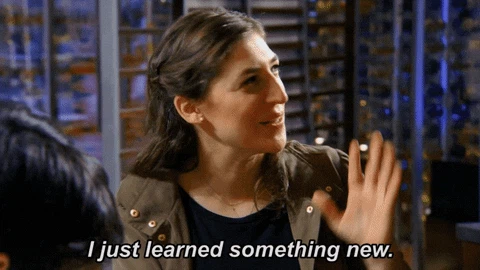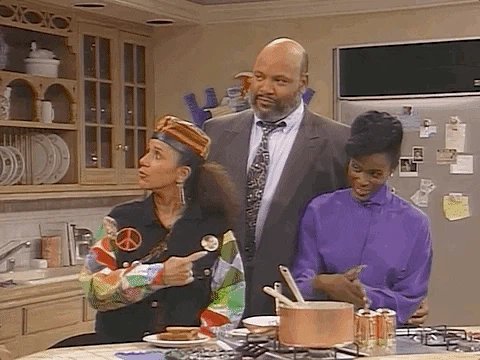Why Getting Married Still Matters
A significant portion of millennials and Gen Z just don’t see the “point” of getting married anymore. Here's what they're missing.

Over the last century, marriage rates have continued to decline. 81% of those in the Silent Generation (born between 1928-1946) were married between ages 23 and 28. That number fell to 61% for the Boomers (born 1946-1964). Again, with Gen X (born 1965-1980), that rate declined to 53%, and for millennials (born 1981-1996), that number whittled down to 44%.
It’s no secret that marriage isn’t as in vogue as it was once upon a time. A Pew Research Center report found that a quarter of 40-year-old millennials have never been married. More and more young men are opting out of marriage. Young women are rejecting the idea of “aspiring” to become a wife. Marriage is often regarded by younger generations as nothing more than a piece of paper; one survey reported that two in five young adults considered marriage to be an outdated tradition. Many see it as a commitment that will only hold us back from growing into the people we’re meant to be and achieving our dreams. And even those who aren’t necessarily against marriage would prefer to think about their career, their happiness, and their achievements; to them, adding marriage on top of that would be nice, but not necessary for a good life.
While divorce rates in America have begun to decline, they’re still high enough to cause concern, especially considering the fact that countless young people saw their own parents’ marriage fall apart. It certainly seems easier to date someone, fall in love with them, and perhaps even move in together without tying the knot. This way, in case things end up not working out, at least there’s no paperwork to do, no name change to figure out, no bank accounts to divy up. You simply go your separate ways; no harm, no foul. Rinse, repeat.
And it’s true that, in many ways, it’s less complicated to forgo getting married altogether. It’s simpler to not make a commitment that’s supposed to last a lifetime, and instead do what makes the most “sense” for us in different seasons of life, whether that looks like becoming invested in a relationship or choosing to focus on ourselves. But is it actually better to not get married?
It’s true that marriage isn’t a requirement to have a full, good, beautiful life. Being married isn’t the only means by which we can find purpose, and there are many people who are content with never getting married. But this doesn’t negate the fact that marriage is far more than a piece of paper; if you find the right person, it’s a deeply meaningful, beautiful, life-changing union that shouldn’t be written off and dismissed. Getting married still matters greatly. And we’d like to tell you why.
Getting Married Makes You Happier
We’ve all heard it said, often callously, that marriage will make you miserable, that it will suck the zest for life right out of you, and that you’ll be jealous of your single friends as soon as the reality of being married hits you. Marriage is often painted as the beginning of the end – fast forward 40 years, and you’ll regret throwing away your happiness for something you were “conditioned” to want.
But studies just don’t back this idea up. A Gallup poll of over two million participants concluded that married people shared having higher levels of happiness than those without a spouse. “Marital quality is, far and away, the top predictor I have run across of life satisfaction in America. Specifically, the odds that men and women say they are ‘very happy’ with their lives are a staggering 545% higher for those who are very happily married, compared with peers who are not married or who are less than very happy in their marriages,” writes Brad Wilcox, professor of sociology and the director of the National Marriage Project at the University of Virginia, in his book, Get Married.

You Have a Forever Life Partner You Can Count On
If there’s one thing that the explosion of “main character energy” TikToks over the last year have taught us, it’s that humans are designed with an innate need for and gravitation toward story. “Stories help us smooth out some of the decisions we have made and create something that is meaningful and sensible out of the chaos of our lives,” says Dan McAdams, a psychology professor at Northwestern University. We yearn to know that the story we are telling with our lives is a good one, that it matters, and that we are the heroines and the heroes.
Getting married is, ideally, a lifelong promise you make to someone. This commitment offers a consistency of narrative – this person enters your life and chooses to never leave. They are someone that you will partner with forever, that you can count on to be there with every new morning and every new life season. With everything else in the world that you can’t control or predict, you are able to find safety and security in the fact that there is someone at home who loves you.
Tying the Knot Can Positively Affect Fertility
Following the Baby Boom from 1946 to 1964, birth rates in the United States have gradually declined, with data collected in 2020 finding that 43 states “recorded their lowest general fertility rate in at least three decades.” One reason this decline in fertility is occurring is that we’re waiting longer than ever to get married.
And while many of us have been told time and time again about how important it is to protect the world from overpopulation, these record-low birth rates are actually cause for alarm. “It’s a very bad thing. It’s a thing that involves aging societies, declining populations, fewer and fewer young people available to pay the taxes and consume the goods needed to sustain a society and to sustain pensions and healthcare and other necessities,” John Ibbitson, journalist and author of Empty Planet, shared on Deep Dish on Global Affairs Podcast.

There’s a Built In Sense of Purpose and Belonging
The need for purpose and belonging is one that is woven into the fabric of humanity, so much that psychologists call it a “fundamental part of human nature.” It’s imperative for our well-being that we feel useful and valuable, wanted and known, by the people around us.
Having a spouse offers you a relationship where you always belong, whatever each of you might be going through. While friendships can fade and familial relationships can splinter, once you say “I do,” you’re always going to be someone’s wife. Along with that, the closeness, intimacy, and familiarity that comes with being married (have you heard of a “marriage language” yet?) is one that can’t be found in other relationships, no matter how good and close they are. When you’re married to someone, that person becomes a home to you.
But it’s not just a sense of belonging that you gain. You also gain a new sense of purpose. Because you’ll be spending the rest of your years with your husband, everything you do that builds into the relationship matters significantly. Something as small as sharing breakfast together, when done over a period of a decade, makes for a daily rhythm of connection that will mean something in the long run.

It Helps You Discover More About Yourself
Millennials and Gen Z are all about self-discovery. And this isn’t inherently a bad thing. It’s wise to reflect on who we are, what our passions are, and what we want to do with our lives. The issue, though, is that we often tend to value the independence that comes with being single as a better use of our life than giving up much of our freedom just to wake up next to the same person for the next 60 years. We think of getting married as the death sentence to our self-discovery.
But this idea actually rings hollow. Sure, getting married means that you can’t continue to date around – but how much “self-discovery” can be achieved by swiping through a hefty supply of single guys and going on an endless stream of first dates? Tying the knot can actually help you learn far more about yourself than if you’d stayed away from marriage entirely. It pushes you to confront your shortcomings and enables you to grow in your natural strengths.

It Can Ease Stress and Loneliness, and Boost Your Immune System
Loneliness is becoming a significant issue for young Americans. But not because being lonely makes us depressed. A lack of social connection can put us at higher risk for heart disease, stroke, dementia, and premature death. Yes, you read that right – long term loneliness can kill us. Alongside the rise of loneliness is the growing problem of stress for U.S. adults, according to the American Psychiatric Association. Just last year, more Americans rated their mental health as fair to poor, up 5% from the year before.
Getting married doesn’t mean that you’ll never feel stressed or lonely ever again, but it certainly offers some amount of protection from feeling these things on a consistent basis. It’s still a good idea to foster friendships outside your marriage, but simply having a person with whom you can always share a meal, a bed, and a conversation lowers the temperature – and that’s aside from the fact that your spouse will likely become your best friend, the person you want to spend a significant portion of your time with.
And as far as stress goes, don’t listen to the voices that insist that being married will be the most difficult, most stressful thing you’ll ever do, because studies actually show us the opposite: A Carnegie Mellon University study concluded that, over a three day period, married individuals had lower levels of stress hormones (cortisol) than unmarried individuals. Not just that, but when married people showed a spike in their cortisol levels, they were more likely to decline faster, which has been linked with a lower risk for heart disease and a longer survival period for cancer patients.

Married People Tend To Have Better Finances
The vast majority of Americans are at least a little bit worried about money right now. The Mind over Money survey by Capital One and The Decision Lab found that 77% of participants reported having anxiety about their finances. 58% of those surveyed said that they felt controlled by their finances rather than in control of them. The most common things to be worried about, according to the survey, was having enough money to retire, being able to keep up with the rising cost of living, and debt levels.
As unromantic as it might seem, this is one area where having a spouse can really help. Married couples filing jointly are eligible for higher tax deductions, for one. They also qualify for lower insurance premiums than their unmarried counterparts, and securing a loan could become significantly more likely. So while getting married doesn’t mean inflation will go down, there are financial benefits that will always be available to you, no matter the state of the economy.

Kids with Married Parents Fare Better
We’ve covered many of the ways that getting married matters for the people in the marriage. But what about the children that might come from that marriage? Does marriage have any effect on kids?
The short answer? Yes. While growing up with only one parent present or two divorced parents doesn’t at all mean that a child can’t succeed and lead a happy life, it’s still far easier for children with two present parents to flourish. This comes down to the simple fact that having two committed and present adults is more advantageous than one, even if that one is very committed and present.
Children without both parents in the home are more likely to be raised in poverty, less likely to finish high school and college, and more likely to be incarcerated. Conversely, children with married parents will benefit from greater economic resources, a more secure home life, do better in school, and have consistently shown better physical and emotional health.

Getting married still matters, even if it’s less popular than it used to be. If you prioritize marriage and find the right person to say “I do” to, there are countless benefits to reap, from gaining a forever partner to having better physical health – and your kids will thank you, too.